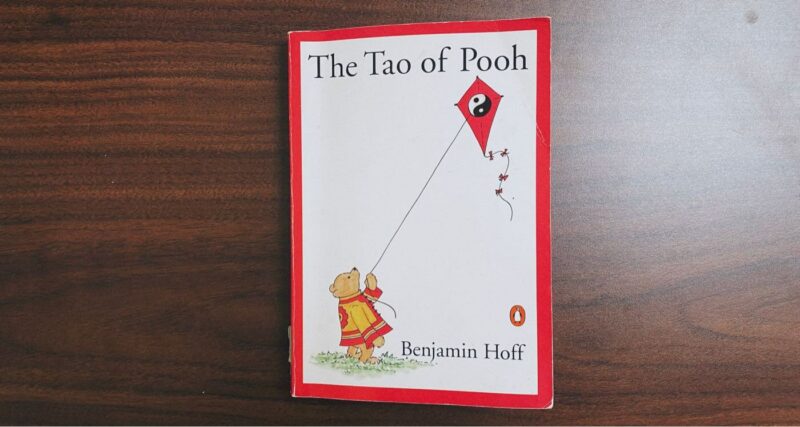A client of mine once said: Depression is a beast.
Not only is depression agonizing to live with, but after nearly a century of research and clinical experience, our technical understanding of what it is and where it comes from is shockingly poor. And that’s not to mention our perpetually limited effectiveness in treating it.
But there’s one recent approach to depression that I believe deserves more attention. One that synthesizes much of Western scientific empiricism with several important insights from the Eastern wisdom traditions.
This somewhat counterintuitive approach is summarized in a book called The Mindful Way Through Depression. The core idea of the book is that the very thing that seems most natural when we’re depressed—trying to eliminate our negative feelings—is what exacerbates our depression and makes us all the more vulnerable to it in the future.
Consequently, successfully working through depression and becoming resilient to it depends on cultivating a better relationship with our negative emotions—not eliminating them.
What follows is a collection of my favorite quotes and passages from the book along with my own brief thoughts and reflections.
On Depression
When depression starts to pull us down, we often react, for very understandable reasons, by trying to get rid of our feelings by suppressing them or trying to think our way out of them… In our heads, we try out this solution and that solution, and it doesn’t take long for us to start feeling bad for failing to come up with a way to alleviate the painful emotions we’re feeling.
In other words, feelings don’t cause depression; it’s the avoidance of feelings that make us depressed.
On Mindfulness
Cultivating mindfulness can help you let go both of past regrets and worries about the future. It increases mental flexibility so that new options open up to you when the moment before you may have felt there was nothing you could do. The practice of mindfulness can prevent the normal unhappiness we all experience from spiraling down into depression. It does so by helping us get back in touch with the range of our inner and outer resources for learning, growing , and healing, resources which we may not even believe we have.
Depression, almost by definition, is stuckness—and not just physical stuckness, but mental stuckness: employing the same mental scripts and thought patterns over and over again.
Mindfulness is flexibility.
On Triggers
Not only can thoughts affect mood, but in those of us who get depressed, mood can affect thoughts in ways that can then make an already low mood even lower.
A helpful distinction is to see low mood at a trigger for depression, but not a cause.
Between stimulus and response is the potential for pause.
If you can learn to validate low mood and difficult emotions instead of rushing to figure them out or “fix” them, your odds of escaping the depression cycle go up dramatically.
On Downward Spirals
It’s not difficult to see how feelings, thoughts, physical sensations, and behaviors are all part of depression… What’s harder to see is how any one part of this anatomy can trigger the downward spiral and then how each component feeds into and reinforces others… Sadness can give way to depression when the sadness turns into harsh negative thoughts and feelings. This morass of negative thinking then generates tension, aches, pains, fatigue, and turmoil. These then, in turn, feed more negative thinking… We only compound our feelings of depression if we deal with them by giving up activities that normally nourish us, like getting together with friends and family who might be a real support for us.
Instead of trying to eliminate depression, cultivate the things that counteract it and protect against it.
On Emotions in Depression
It’s normal for emotions to come and go, but it is rare for such depressive feelings to occur by themselves. They often cluster with anxiety and fear, anger and irritability, hopelessness and despair… For some, especially young people, irritability is a more prominent experience than sadness in depression.
Depression is not extreme sadness. There’s far more to depression than one particular emotion. It’s a cluster of many different emotions intertwined with many different patterns of thought and behavior.
On Sadness
The problem with persistent and recurrent depression is not “getting sad” in the first place. Sadness is a natural mind-state, an inherent part of being human. It is neither realistic nor desirable to imagine that we can or should get rid of it. The problem is what happens next, immediately after the sadness comes. The problem is not the sadness itself, but how our minds react to the sadness.
I’ve never seen a case of depression that didn’t involve a confused and conflicted relationship with sadness.
On Rumination
You may think of self-focused, self-critical frames of mind as brooding. Psychologists also call it rumination. When we ruminate, we become fruitlessly preoccupied with the fact that we are unhappy and with the causes, meanings, and consequences of our unhappiness… We ruminate when we feel low because we believe that it will reveal a way to solve our problems. But research shows that rumination does exactly the opposite: our ability to solve problems actually deteriorates markedly during rumination.
An under-appreciated phenomenon in depression is that the habit of rumination gets reinforced because, in the short-term, it provides a sense of agency and hope because it feels like problem-solving.
On Shooting the Messenger
But we don’t like to feel sad because it can quickly turn into a sense that we are somehow flawed or incomplete; so we call in the intellect to focus on the mismatch between what “is” and what “should be.” Because we can’t accept the discomfort of the message, we try to shoot the messenger and end up shooting ourselves.
Meaning-making is a dangerous game.
Most of us inherit unhelpful cultural beliefs about what “negative” emotions like sadness mean.
The next time you feel sad, try this: Sadness means that I’ve lost something truly valuable in my life and I miss it dearly.
On Judgmentalness
Mindfulness is the awareness that emerges through paying attention on purpose, in the present moment, and non-judgmentally to things as they are… however they are, rather than as we want them to be.
Most people are addicted to self-judgment. Probably because they grew up in an environment where they were judged routinely.
But you don’t have to judge yourself. You don’t even have to think about yourself.
You can learn to simply observe yourself. And be with yourself.
On Judgmentalness (2)
The habit of judging ourselves severely disguises itself as an attempt to help us to live better lives and to be better people, but in actuality the habit of judging winds up functioning as an irrational tyrant that can never be satisfied.
You’ll never win the game of being good enough. But you can stop playing.
On Facts vs Thoughts
The tremendous power of the mind to think about things allows us to solve problems mentally before we actually put the solutions into action. IT enables us to plan and imagine and write novels. The difficulty occurs when we confuse the thoughts about things with the things themselves. Thoughts involve interpretation and judgments, which are not in themselves facts; they are merely thoughts.
So much emotional suffering comes down to confusing thoughts for facts.
Practice telling the difference.
On Goals
We’ve been taught that setting goals and working toward them is the way to get where we want to go: to happiness. It may be difficult to believe, then, that not clinging to goals, even worthy goals, may be the way out of unhappiness.
Self-improvement without self-compassion is a dangerous game.
On Mindfulness Meditation
Mindfulness meditation allows us to respond creatively to the present moment, freeing us from the knee-jerk reactions that start the cycle of rumination.
Mindfulness as emotional creativity. I like that.
On the Wisdom of the Body
The body has a lot to tell us about how we are feeling, not just at peak moments but all the time. Yet we often don’t hear its messages with any degree of wisdom, because we are too busy reacting in ways that immediately trigger a cascade of thoughts and judgments.
It’s impossible to overstate the profound feelings of freedom and relief that comes from being skillful at not thinking about things all the time.
On Feeling Bad
This attempt to avoid our emotions, our thoughts, our feelings, and our body sensations is called experiential avoidance. Not surprisingly, it can become a habit. Who wouldn’t tune out feelings and body sensations if the news on this frequency had been too unpleasant too often? But pretending some feeling isn’t actually here is like hearing a strange noise from your car engine and dealing with it by turning up the volume on the car radio… If we try to wall off bodily sensations, thoughts, and feelings that are part-and-parcel of our emotional experience, then psychologically our mental “engines” are highly likely to seize up as well!
Most people’s strategy for dealing with emotional distress is the equivalent of putting a piece of tape over their low-fuel light because they don’t like how it makes them feel when it goes off.
Don’t shoot the messenger.
On Befriending Difficult Emotions
Befriending emotions that we’ve viewed as the “enemy” for so long may run counter to all our self-preservation instincts. But when it comes right down to it, what else is there to do? The alternative so far has been to struggle and suffer whenever things have not gone as we had hoped they would. Perhaps it’s time to explore another path.
No emotion is dangerous. But if you get in the habit of treating them as threats, you will start to feel as if they are.
On Relationship-building
Mindfulness is not about getting rid of anything, nor is it about “not having” (negative) feelings arise in the first place. Rather, the intention behind cultivating mindfulness of emotional states is to learn how we can relate to them in ways that will not get us stuck in unhappiness.
Sometimes I think my entire goal as a therapist and psychologist is to teach people how to cultivate a different relationship with their emotions.
On Self-authorship
We are always explaining the world to ourselves, and we react emotionally to these explanations rather than to the facts.
You are not just a character in your life story. You’re also the author. And the author gets to decide what the narrator says about the characters, including you.
There are so many things we can’t control in life, but how we choose to narrate the events of our life is one of the few things we can.
Take the narrative reigns.
On Habits of Mind
Most of what drives our emotion and behavior is not deeply unconscious, but just below the surface of our awareness… We can all become more aware of the “stream of consciousness” going on in our minds, moment by moment. If it is potentially damaging to us, it is not because it is buried deep in the psyche but because it is virtually unattended. We have gotten so used to its whisperings that we don’t even notice it is here. And so, it shapes our lives.
The great mistake of modern psychology was to assume that the most important psychic activity was unconscious.
In truth, the most important psychic activity is semi-conscious, or in plain English, habitual. And while habits can operate outside our awareness, they are certainly capable of being analyzed, understood, and changed.
How we habitually think determines how we habitually feel.
On Thoughts
Each time we gently label our thoughts as “thinking” and intentionally disengage from the thought stream, we reinforce the shift in relationship toward seeing thoughts as thoughts. They are mental events that pass through the mind like clouds or weather patterns pass through the sky.
Repeat after me:
I am not my thoughts. I am not my thought. I am not my thoughts. I am not my thoughts. I am not my thoughts…
On Arguments
Intellectualizing and analyzing doesn’t work when low mood has been triggered. Remembering that “thoughts are just thoughts” is the wiser strategy.
It’s like trying to argue with your inebriated and racist uncle Harry at Thanksgiving dinner: You may be right, but arguing is not likely to benefit anyone at this moment.
Best to walk away and make a plan to confront him assertively the next morning.
On Ordinary Mindfulness
It is easiest to be mindful at the times when we least need it. Then, when we most need it, our capacity to meet the moment with mindfulness seems to evaporate.
Cultivating a mindfulness practice is great. Cultivating ordinary mindfulness is better.
On Gentleness
A little kindness and gentleness toward yourself is a wiser and more skillful response to feeling threatened than any amount of analytical problem-solving.
Better yet: analytical problem-solving is more likely to be effective when it rests on a foundation of gentleness and self-compassion.
On Happiness
Letting go of happiness as a goal can pave the way for happiness to appear on its own.
There’s tremendous wisdom in understanding which goals in life are best pursued directly vs indirectly.
On Feeling Bad
Most of us have internalized the medical model of negative emotion—that they are akin to malicious bacteria and something to be eradicated or tamped down.
But your emotions, even the painful ones, are not bad, dangerous, or foreign. They’re an intrinsic part of who you are.
Instead of trying to banish your painful emotions, what you invited them in and tried to foster a better relationship with them?
Our emotions are not the enemy, after all, but messages that reconnect us in the most basic and intimate ways with the adventure and experience of being alive.





8 Comments
Add YoursThis article gave me hope!!!!!!
I had never read such things about depression and these other things
Thank you
Thanks Nick. Great insight and Super Soothing. ????
I love how you are able to simplify so many topics in such a gentle format. Very inspiring and helpful.
I am so happy to have found you,
Depression is something I have
lived with my entire life.
I will re read and try to use
and remember, what you have shared.
Why does something so simple seem so complicated for the immediate instinct or personal perspective of the feeling is that of having to consume a dinosaur on a full stomach and worry I won’t bite it in the right spot therefore failing is insurmountable and I am honestly paralyzed by the way I am randomly trying to figure out how to fix me am I broken at all and how much I would be able to teach me that I was not actually taught that I would like to get perspectives for and I am honestly ADHD and probably should seek treatment of that situation so I can be able to get the opportunity for a more thoughtful response and then I will be able to get something else instead of the normal instinctive destructive and ultimately remorseful self loathing response but how at 41 do i seek treatment of a undiagnosed ailment without the doubt i am able to get a understanding of the ability to be a self aware individual and not be drug seeking or sound insane
Thank you thank you
Just these small “ mind shifts” you offer ,Nick,help so much-
With a small “ aha” and a bit of an ironic smile at myself I can say – “ oh, I get it. Look at it THIS way.”
Why does something so simple seem so complicated for the immediate instinct or personal perspective of the feeling is that of having to consume a dinosaur on a full stomach and worry I won’t bite it in the right spot therefore failing is insurmountable and I am honestly paralyzed by the way I am randomly trying to figure out how to fix me am I broken at all and how much I would be able to teach me that I was not actually taught that I would like to get perspective on
This is a little bit of the issue with impulse control I posted on the feed 2 times and it was unintentional and incomplete sorry